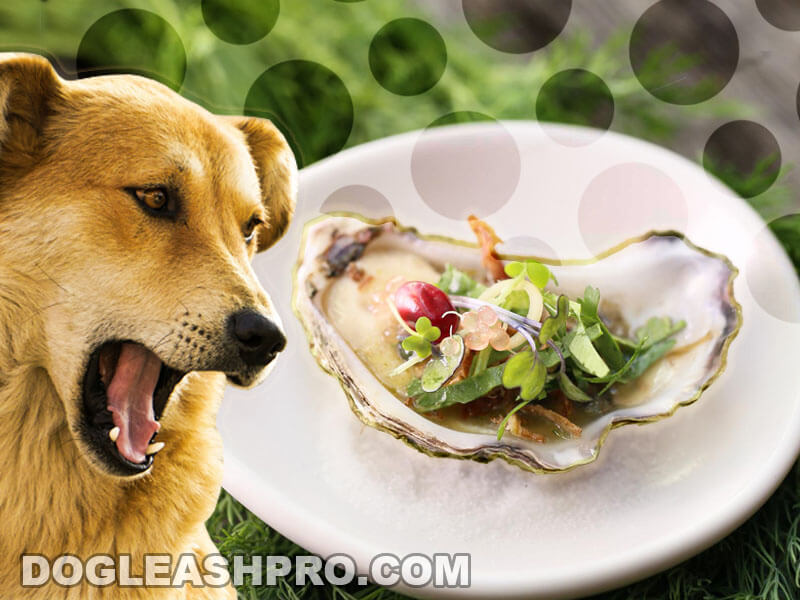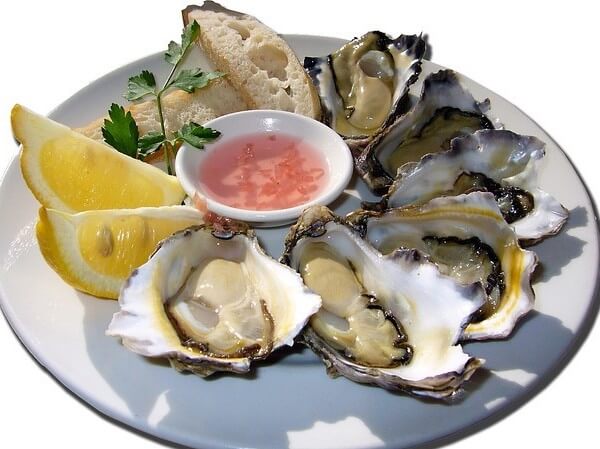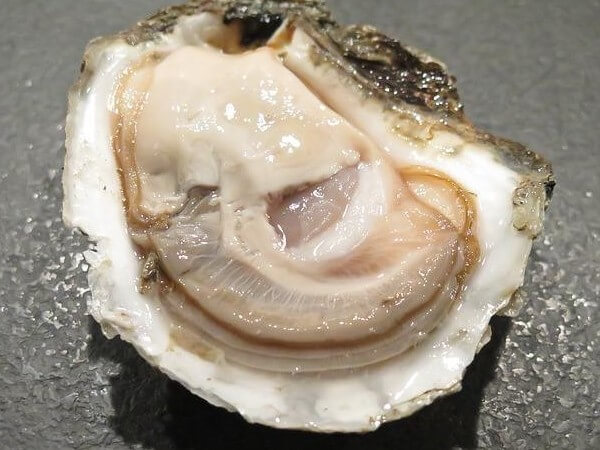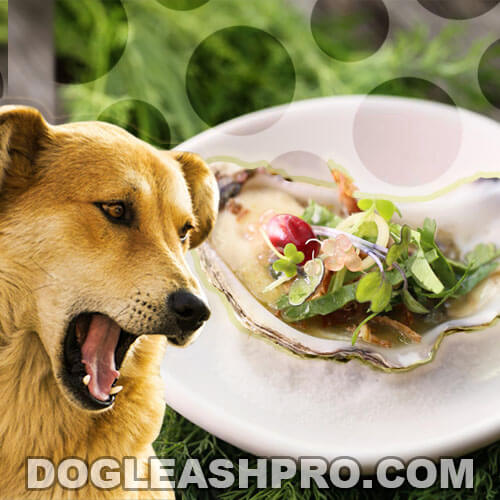

You’re enjoying some raw Oysters with a little bit of spicy horseradish when your canine companion rushes over and begs for some with their puppy dog eyes. Before you offer him one, you’re probably wondering, Can dogs eat Oyster? Is it ok to give my dogs raw Oysters or should I cook them first? Here’s the quick answer first.
Can dogs eat Oysters? Yes, dogs can eat Oysters in moderation since Oysters are packed full of essential minerals like iron, zinc, and selenium as well as omega-3 fatty acids, and protein. Before feeding your canine companions Oysters, proper preparation is key. You’ll want to make sure the Oysters are cooked and that the Oyster shells are removed.
In this article, we’ll discuss everything you need to know about dog and Oyster, including the best way for your furry friends to enjoy this delicious seafood. Oysters can come in various ways: raw, cooked, canned, or smoked so which of these ways are best for our dogs? Read on to find out!
Table of Contents
Can dogs have Oysters?

Yes, dogs can have cooked Oysters in moderation. Oysters make for a great doggy snack or treat since they are low in calories and provide tons of nutrients, vitamins, and minerals.
To fully understand why Oysters are great for our furry family members, let’s take a quick look at the nutritional profile of a 100 grams of cooked Oysters:
Nutritional Profile of cooked Oysters (100g)
| Name, Unit | Amount |
| Calories, cal | 79 |
| Sodium, mg | 132 |
| Carbohydrate, g | 4.23 |
| Total Fat, g | 2.65 |
| Protein, g | 8.87 |
| Zinc, mg | 61 |
| Calcium, mg | 92 |
| Iron, mg | 7.16 |
| Magnesium, mg | 28 |
| Phosphorus, mg | 150 |
| Potassium, mg | 242 |
| Copper, mg | 4.44 |
| Manganese, mg | 0.459 |
| Selenium, µg | 30.7 |
| Thiamin, mg | 0.025 |
| Riboflavin, mg | 0.112 |
| Niacin, mg | 1.36 |
| Pantothenic acid, mg | 0.347 |
| Vitamin B-6, mg | 0.045 |
| Folate, µg | 10 |
| Vitamin B-12, µg | 12.9 |
| Vitamin A, µg | 20 |
| Vitamin E, mg | 1.32 |
| Vitamin K (phylloquinone), µg | 1.5 |
| Vitamin K (Menaquinone-4), µg | 3.9 |
Are Oysters bad for dogs?

Oysters can be bad for dogs in several ways. For instance, raw Oysters that didn’t come from clean water systems, canned Oysters brined in salt or preservative, and Oysters cooked in oil or with seasoning are all bad for dogs. If you plan on serving your dogs some Oysters, make sure to cook them first.
Raw Oysters may contain salmonella and other harmful bacteria
Raw Oysters aren’t safe for dogs since Oysters are known to be bottom feeders. This means that they tend to eat what’s at the bottom of the oceans or any other water systems, including algae blooms and toxins. As a result, there’s a high chance that raw Oysters may contain salmonella and other harmful bacteria.
When buying Oysters for your four-legged friends, make sure that they come from clean and cool water systems.
Always stick to fresh Oysters or canned Oysters. Oysters from the can should only be sitting in water and nothing else. If there is added oil or spices in the water, do not feed the Oysters to your pooch.
Canned Oysters brined in salt, preservatives, spices, and oil is dangerous to dogs
Additionally, canned Oysters that have been brined in salt or preservatives are a no-no. Dogs that eat canned Oysters brined in salt may experience sodium poisoning.
If you have smoked Oysters that were canned, seasoned, or processed, then you’ll want to keep that away from your pups as well.
RECOMMENDED: Can Dogs Eat Scallops?
How to best prepare Oysters for your dogs
The best way to prepare the Oysters before serving them to your furry friends is to steam, boil, or bake them. This will help to remove any bacteria in the Oysters. Steaming is best since the process not only removes the harmful bacteria but also it helps to retain the nutrient content in the Oysters.
Avoid adding in any seasoning like salt, garlic powder, or pepper during the cooking process. Any cooked Oysters with added seasoning, butter, or oil are also a no-no.
Lastly, you’ll want to remove the Oyster shells and discard them. Only feed your dogs the Oysters. You can give them to your pooch as they are or chop them up into smaller pieces and sprinkle them across your dog’s regular meal.
Introduce new food like Oysters gradually and slowly
If your pooch has never had Oysters before and this is his first time enjoying some Oysters, you’ll want to start with a small piece or amount first.
Then, you’ll want to monitor him closely and see if he reacts negatively to the cooked Oysters. If he’s itching, having diarrhea, vomiting, is bloated or gassy, and showing signs of upset stomach, do not feed him any more Oysters and call your vet right away. Your pup may be allergic to Oysters.
If everything is fine after he’s eaten the Oysters, you can go ahead and slowly and gradually make your way up to giving him a bit more Oysters.
Are Oysters good for dogs?
Yes, Oysters are good for dogs in moderation. As mentioned previously, cooked Oysters contain protein, essential minerals like zinc, selenium, and iron, as well as omega-3 fatty acids. They also contain vitamin B12, vitamin D, and copper.
Let’s go over each one of them and see how they can benefit your furry friend’s overall health.
Protein from Oysters helps to maintain strong muscles in dogs
Our four-legged friends require protein from their food in order to live a healthy and active life. When feeding our furry friends, it’s crucial that their doggy food is well-balanced, nutritious, and packed full of protein.
That’s because our dog’s body needs protein in order to function properly. Protein is actually made up of amino acids and your dog’s body uses the amino acids to grow healthy skin, coat, and nails.
In addition, the amino acids from protein also help to heal and repair tissues, promote proper development of muscles, support a healthy and strong immune system, and make the necessary antibodies, hormones, and enzymes your dog needs in order to function properly every day.
A healthy amount of protein intake will also allow your dog to stay active since protein plays a vital part in energy production in dogs. It is the protein that helps fuel your canine companions’ energy levels and keep them healthy and active throughout the day.
Fun Fact: Lobster meat is also a great source of protein and it also contains essential minerals. But is Lobster safe for doggy consumption? Check out Can Dogs Eat Lobster? to find out!
As we can see, protein is essential and all dogs need protein in their daily diet. When you’re making food for your pooch, make sure that it contains a protein source. This protein source can be chicken, beef, lamb, or soy.
However, if your fur babies are allergic to common protein sources like chicken or beef, then giving them cooked Oysters is a great alternative.
According to a 2016 research paper published in the National Library of Medicine, authors Ralf S. Mueller, Thierry Olivry, and Pascal Prélaud concluded that it’s actually pretty common for dogs to have chicken and beef allergens. The first most frequently reported food allergens were beef, followed by dairy products, then chicken, wheat, and lamb.
Omega-3 fatty acids from Oysters can help puppies and older dogs alike
Not only do Oysters contain protein, but it is also packed full of omega-3 fatty acids. Omega-3 fatty acids are a good kind of fat. Offering a moderate amount of cooked Oysters to your furry friends, whether they are growing puppies or senior dogs, is a good idea because their bodies aren’t able to make their own omega-3 fatty acids.
If you offer some cooked Oysters to your young puppy, the omega-3 fatty acids from the Oysters can help support proper eye and brain development in puppies.
Similarly, omega-3 fatty acids from Oysters can also help older dogs that are dealing with cognitive dysfunction by improving their cognitive functions.
Also, if your senior dog is suffering from chronic kidney disease or canine arthritis, it is a good idea to share some of your cooked Oysters with him since the omega-3 fatty acids from the Oyster can help to treat these two conditions by reducing inflammation.
As we can see, omega-3 fatty acids provide plenty of health benefits for our canine friends. If you notice your dog is hyperactive, depressed, or has anxiety, offering them some Oysters can help.
Finally, if you want your pooch to have a strong and healthy immune system, good heart and kidney health, shiny coat and skin, and have the natural ability for the body to fight cancer, then go ahead and feed your dogs some Oysters.
Iron in Oysters helps to maintain proper physiological functions in dogs
Oysters provide our furry companions with iron. Iron is a key mineral that all dogs need in order for their circulatory system to function properly. If your pup’s circulatory system isn’t functioning properly, it can lead to illnesses and even diseases.
So how exactly does iron help benefit our dog’s overall health?
Well, the main role of iron is to help supply and maintain oxygen to the dog’s circulatory system. Our dog’s body needs iron to create hemoglobin and red blood cells. Iron is also crucial in carrying oxygen in the hemoglobin of red blood cells throughout your dog’s body. This allows the cells in the body to produce energy. Lastly, it helps with proper enzymatic functions.
Many vets will recommend that adult dogs have at least 0.5mg of iron per kilogram of body weight. If you have a growing puppy, that requirement is a bit higher since they are growing quickly.
Dogs with chronic blood loss may experience iron deficiency. Signs and symptoms of iron deficiency include:
- Feeling lethargic.
- Pale or blue gums.
- Panting excessively.
- Dark stool.
- Not willing to go out for a walk or exercise.
- May be more susceptible to illnesses and diseases.
If you suspect your pooch has iron deficiency, it is a good idea to contact your vet and ask him or her for iron supplement recommendations. Oral iron supplements, as well as intravenous iron supplements, can help restore your dog’s iron levels.
In severe cases, a blood transfusion may be necessary.
Check out: Can Dogs Eat Calamari?
Zinc in Oysters supports a strong immune system and proper thyroid function in dogs
Zinc is another essential mineral that our furry friends need. Our pups’ bodies aren’t able to produce this mineral naturally so they rely on us to provide them with food that contains zinc.
Fortunately, Oysters are packed full of this essential mineral, and offering some to your pooch will help give him a boost in zinc intake.
Zinc plays a crucial role in supporting proper thyroid function and immune system function in dogs. With enough zinc intake, your dog will have a healthy immune system, glowing skin and coat, and healthy joints.
Selenium in Oysters is an antioxidant that’s critical to DNA synthesis and reproduction in dogs
You can also find selenium in Oysters. Our canine friends need selenium to stay strong and healthy. That’s because selenium is similar to zinc in that it helps to promote both proper metabolism functions and normal thyroid functions.
Not only is selenium a mineral, but it is also considered a powerful antioxidant. This means that selenium is critical in your dog’s reproduction system, immune system, and DNA synthesis.
Related Article: Can Dogs Eat Crab?
Oysters and dogs
Can dogs eat smoked Oysters?
No, dogs should not eat smoked Oysters that come from a can. Canned smoked Oysters are not safe for doggy consumption because the smoked Oysters are usually sitting in oil, salt, sugar, garlic powder, onion powder, and even citric acid. These ingredients are not healthy for dogs.
In fact, garlic and onion powder are both dangerous and toxic to dogs. If your pooch ate a lot of smoked Oysters, they could be at risk of both onion and garlic poisoning and can suffer from anemia.
Signs and symptoms of onion and garlic poisoning include:
- Vomiting.
- Diarrhea.
- Difficulty breathing
- Increase heartbeat.
- Pale, muddy, or yellow gums.
- Loss of appetite.
- Abdominal pain.
- Body and muscle weakness.
- Feeling lethargic.
- Dark reddish urine.
- Fainting.
The canned smoked Oysters are usually processed with browning, flavors, and preserved with salt.
When our pups ingest more salt than they need, they may suffer from salt poisoning. Signs and symptoms of salt poisoning include:
- Vomiting.
- Convulsions.
- Extreme thirst.
- Frequent urination.
- Diarrhea.
- Confusion.
- Headache.
- Fluid buildup throughout the body.
- Lethargy.
- Muscle tremors.
- Fever.
If you suspect your pooch is suffering from any one of the above-mentioned toxicity, please contact your vet immediately and bring him to the nearest veterinary hospital. The sooner these are treated, the better.
Can dogs have smoked Oysters?
As we can see, ideally dogs should not have smoked Oysters. If you do allow your dogs to have smoked Oysters, make sure to only give them a small amount on rare occasions and as a special treat.
It is not a good idea to feed smoked Oysters to your dogs on a regular basis or as a regular part of their main meal.
Can dogs eat raw Oysters?
No, dogs should not eat raw Oysters because raw Oysters may contain salmonella and other harmful bacteria. Since Oysters are bottom feeders, they will eat whatever is at the bottom of the water system. This includes toxins and algae blooms. Therefore, there’s a high chance that the raw Oysters may contain harmful bacteria and salmonella.
If you’re buying raw Oysters, make sure they’re coming from a cool and clean water system and that they are fresh.
RECOMMENDED: Can Dogs Eat Crawfish?
Can dogs eat Oyster crackers?
Yes, dogs can eat Oyster crackers in moderation. One or two Oyster crackers should be fine for dogs, but no more than that. That’s because some Oyster crackers may be seasoned with salt.
Want more information? Check out Can Dogs Eat Crackers?
Can dogs eat canned Oysters?
Yes, dogs can eat canned Oysters in moderation, however, it’s important to make sure that the canned Oysters are packed and sitting in water. If the canned Oysters are packed in water with spices or oils, then it is not safe to share them with your furry friends.
DISCLAIMER: THIS WEBSITE DOES NOT PROVIDE MEDICAL ADVICE
The information, including but not limited to, text, graphics, images and other material contained on this website are for informational purposes only. No material on this site is intended to be a substitute for professional veterinary advice, diagnosis, or treatment. Always seek the advice of your veterinarian or other qualified health care provider with any questions you may have regarding dietary needs.
Resources:
https://en.wikipedia.org/wiki/Oyster
https://daily.jstor.org/how-oysters-became-a-food-fad-way-out-west/

With over five years of specialized experience as an animal writer, my expertise lies in dog nutrition, health, behavior, grooming, and training. I am dedicated to delivering helpful and informative content that caters to the well-being of our furry friends. My primary goal is to empower pet owners with knowledge and ensure our canine companions thrive in health and happiness. In my free time, I love volunteering at local dog rescue centers.






